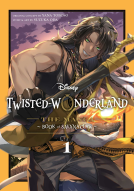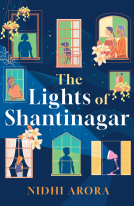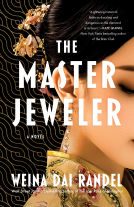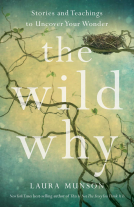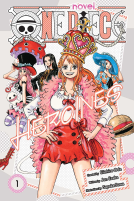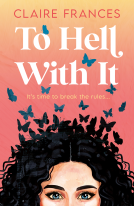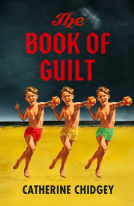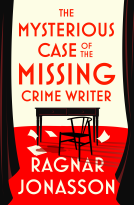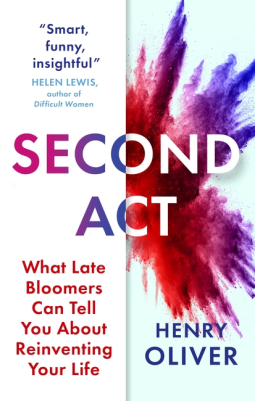
Second Act
What Late Bloomers Can Tell You About Success and Reinventing Your Life
by Henry Oliver
This title was previously available on NetGalley and is now archived.
Send NetGalley books directly to your Kindle or Kindle app
1
To read on a Kindle or Kindle app, please add kindle@netgalley.com as an approved email address to receive files in your Amazon account. Click here for step-by-step instructions.
2
Also find your Kindle email address within your Amazon account, and enter it here.
Pub Date 9 May 2024 | Archive Date 10 Sep 2024
John Murray Press | John Murray One
Talking about this book? Use #SecondAct #NetGalley. More hashtag tips!
Description
"Henry Oliver is a rare talent: smart, funny and insightful. SECOND ACT showcases his wide reading, deep understanding and playful prose style. Read this book to discover why it's never too late for a second act in your own life."
HELEN LEWIS, author of Difficult Women
Have you ever dreamed that you might be far more successful than you are today? Our society tells us over and over that if we're going to achieve anything, we'd better do it while we're young. But whether you're at the start of your career, sensing you're on the wrong path, or feeling unsettled later in life, you're likely wondering just how to reinvent yourself? Have you left it too late?
This book has answers. Late bloomers - individuals who experience significant success later in life - offer lessons for people who feel frustrated. This book encourages people to think about themselves as potential late bloomers and to discover and encourage and advocate for late blooming in others. After all, it's never too late to discover our hidden talents and our accomplish our goals - the road to success is never as straightforward as we are lead to believe. Julia Child didn't discover that she loved to cook until she was thirty-seven. Vera Wang started her design business at forty. And Michelangelo painted The Last Judgment in his sixties.
This inspiring, passionate book combines wonderful storytellingwith fascinating new research, to shift expectations around our life trajectories. You'll discover a range of blueprints for self-reinvention, pairing the newest insights from psychology and neuroscience with late bloomers' remarkable life stories, from Penelope Fitzgerald to Samuel Johnson, from Frank Lloyd-Wright to Malcolm X.
Advance Praise
"Henry Oliver is a rare talent: smart, funny and insightful. SECOND ACT showcases his wide reading, deep understanding and playful prose style. Read this book to discover why it's never too late for a second act in your own life." —Helen Lewis, author of Difficult Women
Available Editions
| EDITION | Other Format |
| ISBN | 9781399813310 |
| PRICE | £20.00 (GBP) |
| PAGES | 368 |
Available on NetGalley
Featured Reviews
In this book, Henry Oliver talks about people who find success later in life. I enjoyed this book for several reasons:
1. The book explains why some people succeed later than others in different fields. Oliver's stories help us understand and appreciate these unique journeys fairly.
2. In the introduction, Oliver uses the word 'perhaps' as the spirit of the book to show that hidden talents often go unnoticed. This approach is refreshing and different from most social science books because it shows to the reader, in this case myself, to keep an open mind. Despite this, Oliver supports his arguments with studies and research from both academic journals and popular sources.
This is an encouraging reminder to keep exploring our interests, stay persistent, and find the right support to help us succeed. It shows that it's never too late to start something new or achieve our goals, making it a great read for anyone who feels behind in life.
 Reviewer 1461752
Reviewer 1461752
Second Act is a truly delightful read. No matter what age you are, or whether you feel you’re ’not there yet’ (whatever and wherever the ‘there’ might be), it’s the kind of book that leaves you with a new, healthy perspective on modern society’s obsession with young high achievers and self-optimisation.
I hate the concept of ‘late bloomers’ that’s generally used to describe anyone deemed to be lacking - in experience, contentment, career etc. I equally dislike the trend of 30 under 30-type rankings that make you feel like failure for not living in a castle by the time you’re 29.
Oliver offers a beautiful and much needed reminder that a meandering career and interests are to be valued. It’s a great combination of real life examples (from Maya Angelou, to Washington Post owner Katherine Graham, to - yes - Margaret Thatcher) and deeper analyses of what, and how, what we consider “success” is achieved in ways and ages that wouldn’t make a flashy Forbes cover. Second Act is inspiring, deeply intelligent, and a thoroughly enjoyable read. Not to mention packed with solid career advice.
A big thank you to Netgalley for the chance to read this excellent work.
 Elle P, Librarian
Elle P, Librarian
Engaging, accessible, and ultimately hopeful. A recommended purchase for collections where self-help titles are popular.
 Educator 987175
Educator 987175
Thanks to the publisher and NetGalley for letting me review this book. This has some great pointers for being yourself and never give up, and embrace failure. Try here were some people I’d never heard of but many I have and hadn’t realized they’d experienced failures.
 Reviewer 266180
Reviewer 266180
Compelling and Entertaining..
Blooming late in life? A compelling melange of inspiring tales of people who did exactly that and succeeded. It’s an entertaining read, written in an accessible and rather fun manner and with the data, detail and information to back up and persuade the reader of the arguments behind the possibilities.
Second Act by Henry Oliver is a book about late bloomers or people who discover their path to success later in their lives, contrary to the belief that success can only come in more youthful years. The author has given many examples of late bloomers who have become great people in society, some of whom have done wonders even as late as 90 years of age. He has shown how interruptions of life have brought about significant changes in the lives of people who had otherwise settled for less, only to discover that life has new surprises for them. He has also given great advice, accompanied by real people's life experiences, what made them fail, and what made them succeed.
I like the real-life stories the author has given in the book. It was interesting to have a peek into the lives of these individuals. Good examples include the story about Frank Lloyd Wright and Yitang Zhang. The normal struggles of life and the way success is achieved eventually, is quite encouraging. I also like the immense research and proven scientific studies he has incorporated into the book, making his readers understand without a doubt that a second act is indeed possible. The incredible guidance he gives is likewise a wellspring of motivation; an example is p. 232, "It doesn’t matter when you start as much as it matters that you do start—and then keep going and p. 192 "Change your circumstances and your surroundings, and you might change your life prospects."
I rate this book, Second Act by Henry Oliver, 5 out of 5 stars for the above reasons.
I recommend the book to potential late bloomers, they will find the much-needed advice and encouragement to finally pursue their dreams and explore their potential fully. It will open their eyes and let them know that now is the time to begin their pursuit regardless of age; after all, age is just but a number.
 Bharath R, Reviewer
Bharath R, Reviewer
In this day and age where ageism is pretty widespread, this is a good book which dispels the popular notion that useful contributions can come only in younger ages.
There are several life stories across various professions and industries which are discussed in the book. One prominent example is Katherine Graham, who took over the Washington Post after the death of her husband. Very little was expected from her and she had maintained a low profile till then. She turned out be very successful at her role. Late bloomers often lead unconventional lives and are generally ignored till the results prove them capable. Pitkin in his popular book 'Life begins at 40' said that age need not mean decline. A slow growing human is normal. Research also shows that age has 0 predictive power in recruitment.
Most Investors also prefer younger entrepreneurs to support and fund. There is actually no quick way to gain experience which is invaluable in running a business. Though some abilities do degrade (especially physical), it generally does not impact ability to succeed and there are several compensating factors. Other than cognitive & physical ability, a number of personality traits are very important. Irrespective of age, there is no substitute for hard work and focus. The book does not specifically seek to narrow down who is likely to be a late bloomer.
This is a well written book with good business stories. The points are made largely with examples of successful people, and there is not much conceptual or scientific coverage. Most of the stories included are very good ones, though I found the book a bit dense to read.
My rating: 3.75 / 5.
 Reviewer 1394760
Reviewer 1394760
First of all, I am so glad this book exists: being a prodigy is overrated, limiting success and happiness to certain age groups is depressing, restricting and simply unwise.
Secondly, this book does a decent job of encouraging late bloomers with anecdotes, examples and tips.
Readers who liked this book also liked:
Created by Hayao Miyazaki
Arts & Photography, Comics, Graphic Novels, Manga, Cooking, Food & Wine

